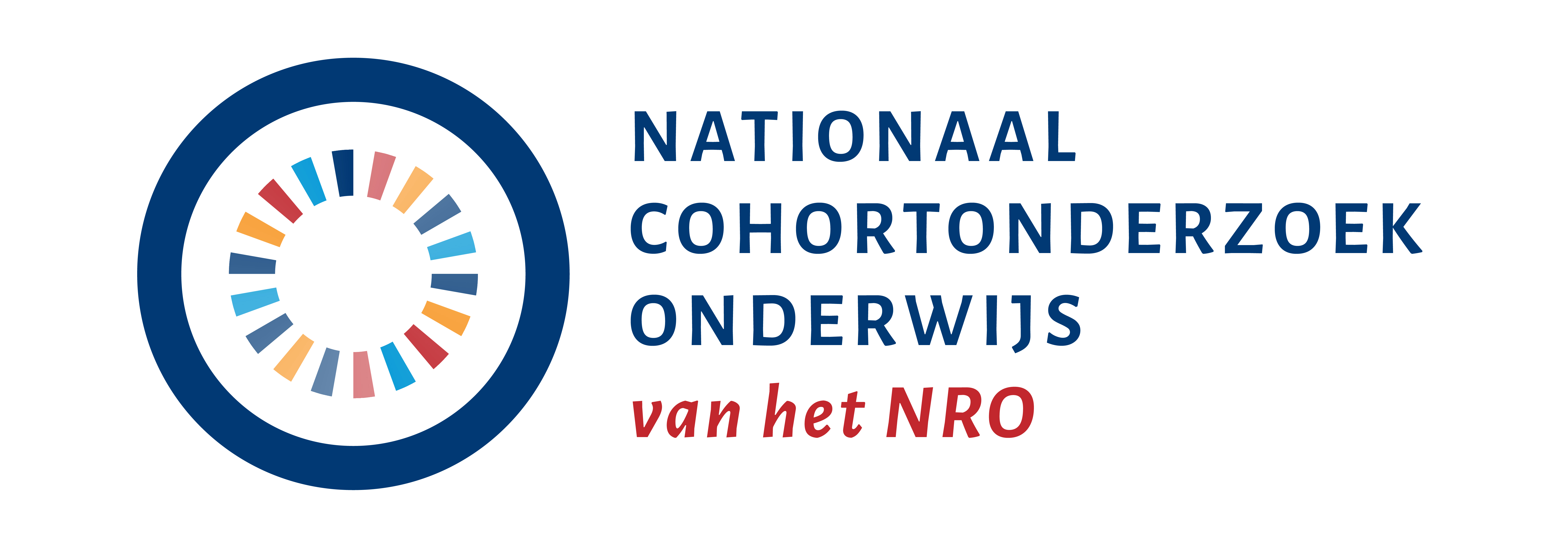The Netherlands Cohort Study on EducationIn Progress
The Netherlands Cohort Study on Education (NCO) uses longitudinal register data on track placement of cohorts of students in primary and secondary education. This study is instigated and financed by the Netherlands Organization for Scientific Research (NWO), specifically by the Netherlands Initiative for Education Research (NRO).The dataset is based at Statistics Netherlands, where it is combined with school administrative data on students’ performance, such as the standardized tests scores used in our study. The Netherlands Cohort Study on Education currently consists of three pillars. The first pillar maps students’ pathways through education and their trajectory into tertiary education and combines this with very rich and extensive information on their (social and family) background using register data from Statistics Netherlands. For each student, information on age, gender, country of origin, marital status of the parents, household information, socioeconomic status (SES) of both student and his/her parents, and regional variables are available. Parental variables include variables on their highest obtained educational level, SES, working status, income, and wealth. The funding of Dutch primary schools is partly based on the socioeconomic background of the school’s population. The NCO data set therefore also holds information on whether or not and to what extent a school population consists of students with disadvantageous socioeconomic status.
The second pillar consists of additional information at the school level. This information is available through the Dutch Ministry of Education and the Dutch Inspectorate of Education. It consists of data on e.g. school size, the level of urbanization of the location of the school and its (religious/secular) denomination. In the future this data will be complemented with more detailed information on the educational process and school quality.
A third pillar consists of microdata on student performance from school administrative systems. Primary schools in the Netherlands are required to monitor their students’ progress in domains such as reading, spelling and maths. Most schools use a national standardized test for this, which makes it possible to have information on the development of students’ performance between the age of 8 and 12.
Based on these data, annually 10.000 confidential school reports are produced for every school in primary and secondary education to inform school boards, school leaders, teachers, and quality control staff about the performance of students in their school as well as the outcomes after they leave school.
Project website: https://www.nationaalcohortonderzoek.nl/
-
NCO Example reports "Leergroei BO"
- Example report “Leergroei BO Cito„ November 2025
- Example report “Leergroei SBO Cito„ November 2025
- Example report “Leergroei BO Cito„ June 2025
- Example report “Leergroei SBO Cito„ June 2025
- Example report “Leergroei SBO Cito„ December 2024
- Example report “BO IEP„ December 2024
- Example report “Leergroei BO Cito„ June 2024
- Example report “Leergroei SBO Cito„ June 2024
NCO Voorspelde referentiewaardes

